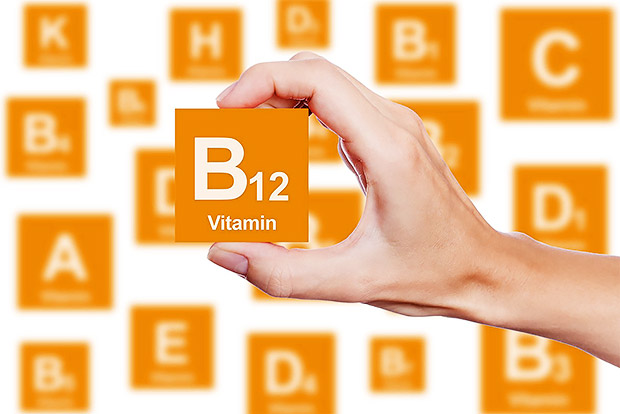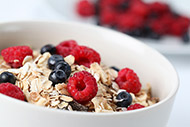
While most vitamins and minerals are identified individually, B-complex vitamins are often referred to as a group of nutrients. These eight distinct water-soluble vitamins assist with converting food to energy, controlling appetite, and forming red blood cells.
Each B vitamin has two or more names. These are the most commonly used:
- B1 - Thiamin
- B2 - Riboflavin
- B3 - Niacin
- B5 - Pantothenic Acid
- B6 - Pyridoxine
- B7 - Biotin
- B12 - Cobalamin
- Folic Acid - Folate
Since these vitamins are water-soluble, the body does not store large quantities. Foods containing B vitamins should be a regular part of your eating plan to ensure these nutrients are readily available in the body.
B vitamins are found in grains, meats, poultry, eggs, fish, dairy, legumes, and fresh vegetables. If you eat a balanced diet, you likely get the B vitamins you need. If you avoid a major food group that supplies B vitamins, you should check with your doctor or dietitian to ensure you are getting appropriate levels. For example, B12 deficiencies are common in vegans, and the symptoms are often not immediately evident.
Food is the best source of vitamins, but if you take a supplement, you should avoid large doses. Even though the body does not store water-soluble vitamins, there are still toxicity risks with high doses.
Sources



 3 Healthy Lunches for Your Work Week
3 Healthy Lunches for Your Work Week
 5 Tips for Stretching Your Budget for Healthy Food
5 Tips for Stretching Your Budget for Healthy Food
 Best Ways to Reduce Added Sugar
Best Ways to Reduce Added Sugar
 Healthy Tips to Lighten Up Picnic Foods
Healthy Tips to Lighten Up Picnic Foods
 Do You Need to Drink Milk?
Do You Need to Drink Milk?
 Tips to Keep Track of Water Intake
Tips to Keep Track of Water Intake
 What Is a Paleo Diet?
What Is a Paleo Diet?
 Eating to Build Muscle
Eating to Build Muscle

 Pinterest
Pinterest RSS Feed
RSS Feed